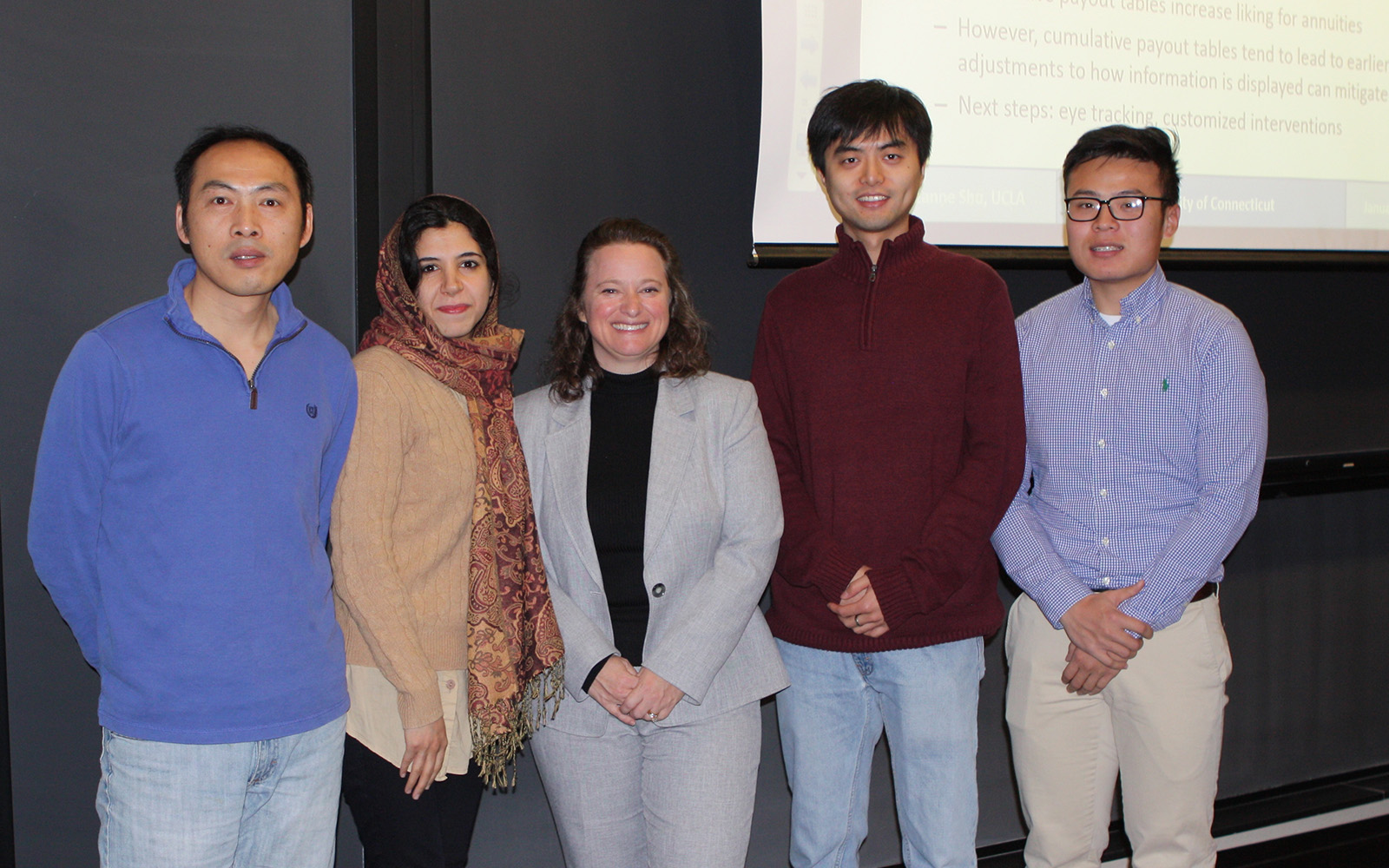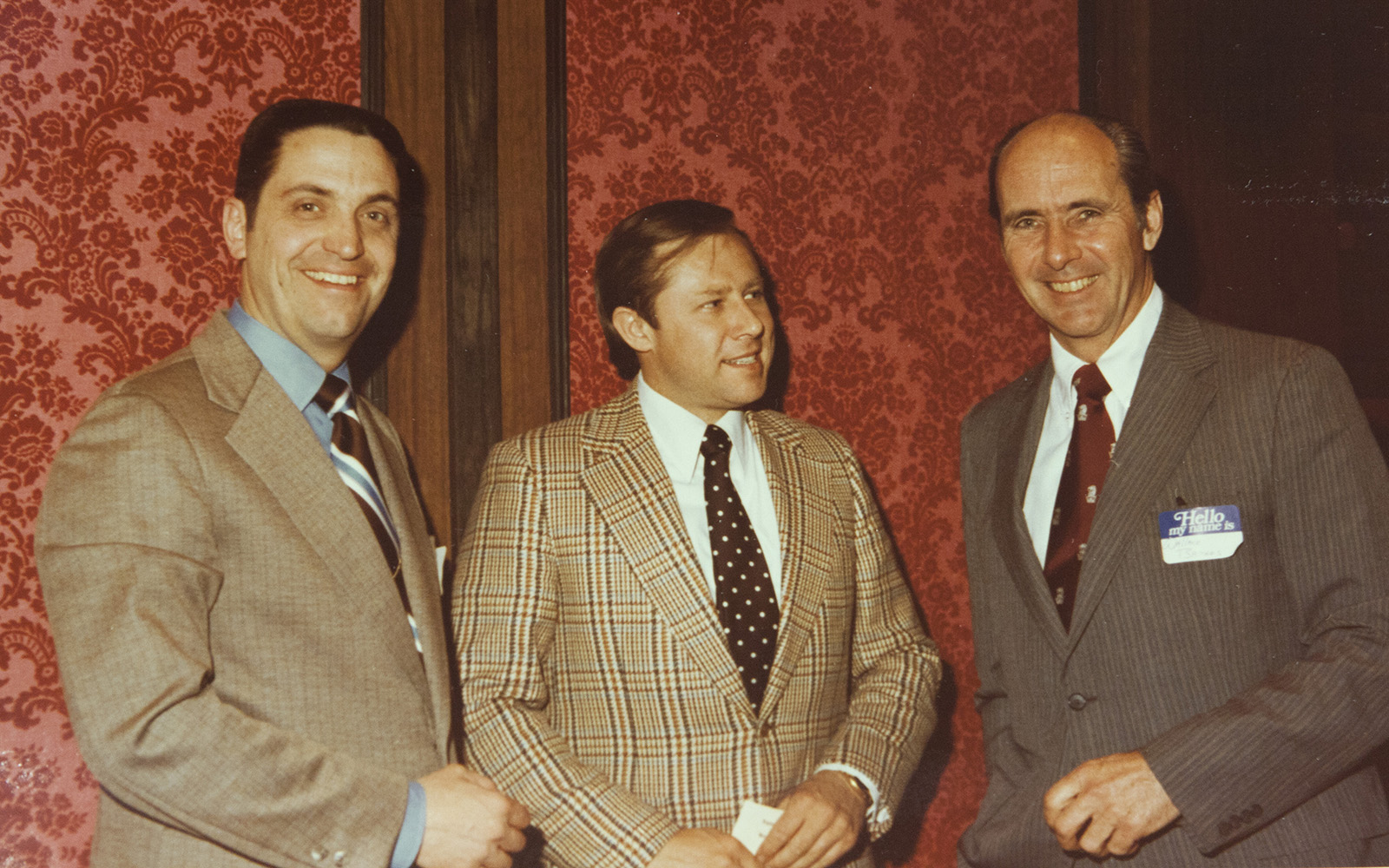Science Codex – How much do consumers care about the carbon footprint of the products they buy? Would they care more if the goods were labeled with emissions data? Does it matter at which stage in the lifecycle of a product the carbon is emitted? Research published in the International Journal of Environmental Policy and Decision Making offers a way to find out.
Research
Risk in Retirement

Ph.D. Student Speaker Series Continues with Marketing
UCLA Marketing Professor Suzanne Shu discussed retirement savings, and how individuals make their decisions about how much to save and how much to spend, during a presentation to faculty and doctoral students on Jan. 29.
“Risk, Ownership and Loss in Decumulation During Retirement,” was the topic of her speech, presented as part of the School of Business Ph.D. Student Speaker Series, which was attended by faculty and doctoral students. Continue Reading
Venture Capital Increases a Startup’s Chances of Issuing Stocks or Finding a Buyer
LSE Business Review – An ultimate challenge for technology entrepreneurs is the need for capital to continue to innovate, sustain, and commercialise their innovation. The considerable risks associated with the technological feasibility, business model credibility, and product or service viability severely limits access to capital, yet angel investors and venture capitalists fill this need by investing in startups in exchange for an equity stake in the company. Does private equity, in fact, provide value-added services by influencing startup innovation and commercialisation beyond mere capital infusion?
‘We Can Do That!’

School of Business Dean Ronald Patten Used Faculty’s Competitive Spirit to Advance Research, Ph.D. Program
Ronald Patten, the third dean of the UConn School of Business, was a bright, fair, likeable and hard-working leader, whose knowledge of business was surpassed only by his charm, and an enviable talent for coaxing the best out of people.
Meanwhile, the faculty who served during his tenure, from 1974 to 1988, were also exceptionally intelligent and enthusiastic. But the trait that most defined the professors and department heads was an unyielding competitive streak.Continue Reading
Decreasing Infant Mortality
UConn Professor, Colleagues Discover That Turkey’s Take-Charge Healthcare Initiative Saves Lives
Since the nation of Turkey launched an aggressive healthcare initiative, providing free and convenient access to primary care for all its citizens, at conveniently located walk-in clinics, the mortality rate has decreased, most dramatically among infants.Continue Reading
Better Catalytic Converter: A New Tool for Emission Control
UConn Today – Two UConn researchers have developed a technology that promises big improvements on one of the most common and important emission control tools used to protect the environment: the catalytic converter.
With help from UConn’s NSF program, Accelerate UConn, the pair are now well on their way to commercializing their new technology
NSF Program Helps UConn Entrepreneurs Get Started
UConn Today – Imagine that due to your family medical history, you had an almost 100 percent risk of developing cancer in your lifetime. Now imagine that you discovered this fate before you even started high school. Today that is the reality for many patients with classic familial adenomatous polyposis (FAP), a hereditary colon cancer syndrome.
A team of researchers at UConn Health is exploring ideas for novel approaches to prevent FAP and other inherited colorectal cancer syndromes, and they’re getting out of the lab to do it with help from the University’s new National Science Foundation Innovation Corps Site, Accelerate UConn.
Developing a Solution to the Problem of Dry Mouth
A Look Back at 2015: Research at the Forefront
Reverse Stress Testing
Finance Professor Wins Best Paper Award for Creating Insightful, Novel Method of Risk Assessment
Finance professor Yaacov Kopeliovich and his RiXtrema research team colleagues have won the 2015 Peter L. Bernstein Award for Best Paper for their work titled, “Robust Risk Estimation and Hedging: A Reverse Stress Testing Approach.”
The article originally appeared in the Journal of Derivatives in May 2015. It was selected by a three-person review committee and was chosen from a pool of nominations from 11 top financial journals. The judges looked for an original or new approach to the field or subject of study; surprising and/or insightful results or implications; and both practical and academic relevance.Continue Reading
